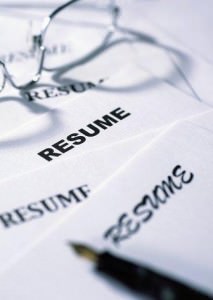Top 10 Resume Mistakes
Dreams Jobs require Proper Resumes!
By: Shelly Verma, contributing writer
A resume is the document that decides whether you’re a potential candidate for the job. The concerned authority will take a few seconds to go through your resume and give you a mental rating. This makes your resume a very important document and you need to be very careful while preparing it. With the web at everyone’s disposal, do not be surprised if your potential employer decides to run a background check on you online.
How do you organize the contents of your resume? Does your resume include a personal profile filled with adjectives? Do you give a detailed job description of your work experience? What do you provide in your resume for reference? How well does your resume speak for your performance? These questions are vital to your resume so that it creates the right impression upon the reader’s mind.
Here are 10 mistakes you could make while preparing your resume:
1) Using out-dated patterns to write your resume: The format of writing a resume has had significant changes over the last few years. Make sure you’re using the current style to write your resume. What’s important is that your resume is clear and contains information relevant to the job and that describes your skills and potential accurately.
2) Inaccuracies in grammar and sentence structure: Grammatical errors and typos must not become a common feature in your resume. Get at least two people to proofread your resume before forwarding it to the company. Take care of uniformity as you make statements. For example, there may be a period after some bullet points and it may be missing in others. Too many mistakes may make the reader wonder how you would handle other communication if you can’t handle one resume.
3) Announcing an objective statement: If you’re making a strong objective and placing it in the first part of your resume, you’re making the biggest mistake. An objective is a statement that describes what you want. For example, “Looking for a job where I can apply my skills and have the potential for growth.” Managers who read your resume are more interested in what the company wants. Your resume must speak more about your achievements rather than your ambitions. [pullquote]Managers who read your resume are more interested in what the company wants. Your resume must speak more about your achievements rather than your ambitions[/pullquote]
4) Using too many subjective descriptions: Your resume must substantiate the claims that are made within. Therefore, you must be careful about using too many descriptive words for yourself. For example, words such as “skilled”, “energetic”, “enthused”, “dedicated”, etc. may sound like a highly positive self-assessment. It would be better to describe your achievements for the perusal of your potential employers.































Share the post "Top 10 Resume Mistakes"